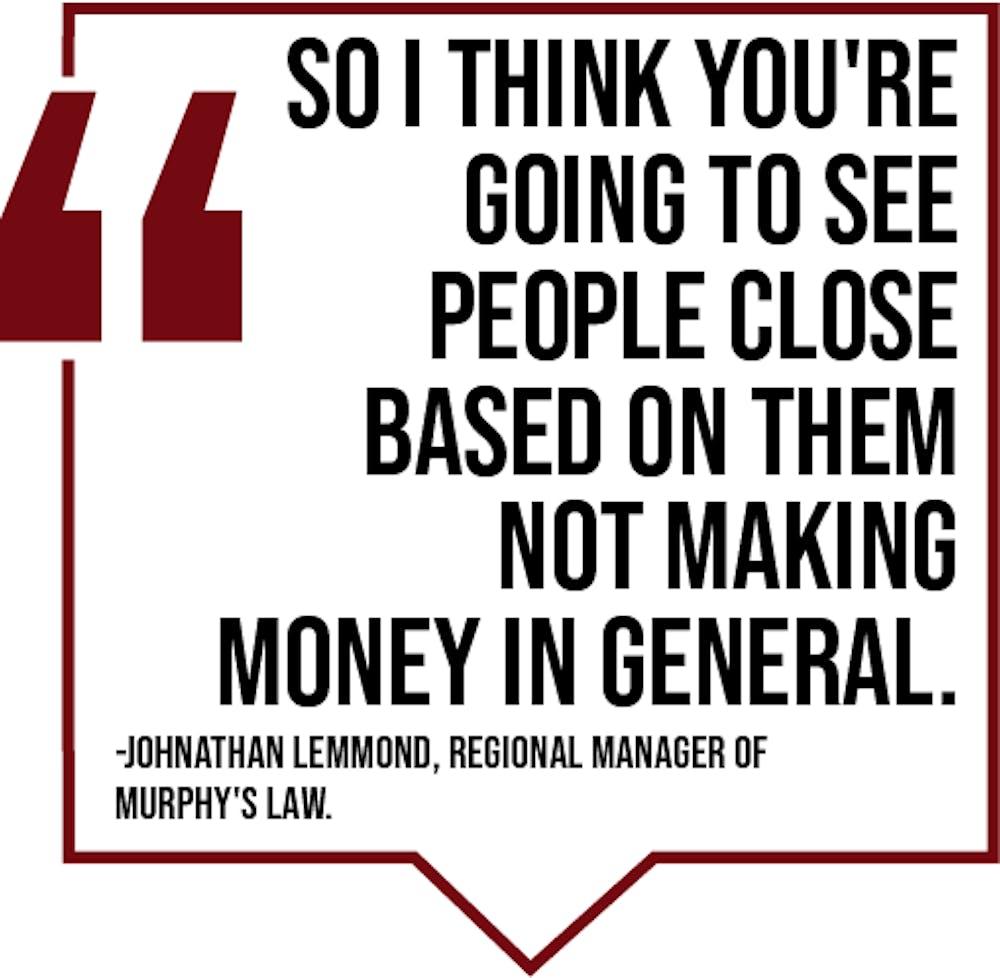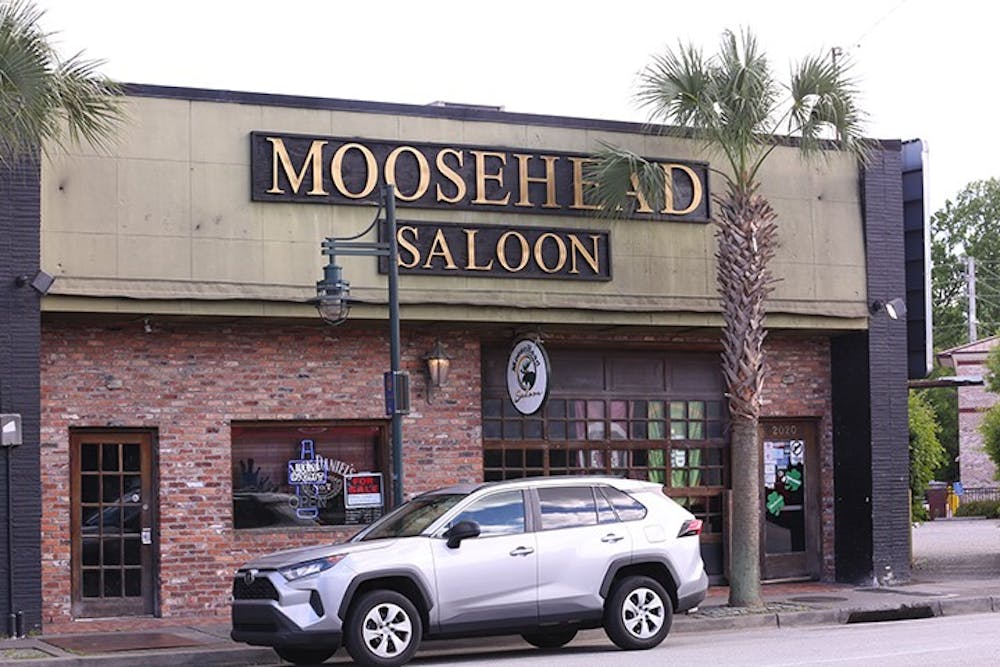With surrounding neighborhoods and USC itself filing formal protests of bars to the South Carolina Department of Revenue, 11 of 15 bars in Five Points earlier this year had their reapplication for their liquor license denied by the department.
As of March 29, Breakers and Breakers Live's temporary liquor licenses were terminated. Moosehead Saloon is now up for sale.
The revenue department filed motions to temporarily suspend Pavlov's Bar's liquor license, according to documents received from the department of revenue. A hearing about the renewal of the license is set for May 18 to 19, according to the same document, which is a motion of suspension.
Without a liquor license, these businesses cannot sell alcohol and thus cannot do business. Robin DiPietro, director of the International Institute for Foodservice Research and Education at USC, said the state is not in a position to shut down more businesses after the damage COVID-19 has done to the economy.
"The city and the state should spend more time working with these bar restaurants instead of just trying to shut them down. To me, it doesn't make any sense. What are you going to do, you're going to get the students to go to house parties? They're much less controlled at house parties than they could be in the bars at Five Points," DiPietro said.
Regional manager of Five Points bar Murphy's Law Johnathan Lemmond said having students at Five Points is better than letting them go to house parties and having no one regulating how much students drink.
"We've got bartenders regulating how much people drink, making sure people don't get too drunk, make sure people don't get hurt. We got door staff keeping people safe," Lemmond said. "You're going to have more people going to the hospital, you're going to have more fights, you're going to have CPD spread out throughout the city versus concentrated in one area."
According to reporting done by WISNews10 on April 14, a survey conducted by self-defense instructor at USC Shannon Henry found about 300 students reported being drugged in Five Points in the previous 90 days.
As of now, USC has filed formal complaints against Pavlov's Bar, Moosehead Saloon and Five Points Saloon, according to university spokesperson Jeff Stensland.
The university files a formal protest of a bar if a bar doesn't serve food; aggressively markets toward underage students or "in a way that encourages overconsumption of alcohol;" whether there is a pattern of over-serving students; and if law enforcement shared "heightened concern" of illegal activities occurring at a bar that would threaten student safety, Stensland said.
"For those bars that are operating at Five Points, we would hope that they would be one's that would be responsible by not serving underage students, not serving students to the point where they'd have to be hospitalized and serve some food. Which, as you know, prevents people from overconsumption," Stensland said.
According to Lemmond, those going against Five Points through legal channels are now using the "morality clause." Under this, to obtain a liquor license an establishment must be in "good standing character" in the community. If a bar is letting underaged drinkers into their bars, the bars are of unfit character.
To appease authorities and to appear better in court, bars, including Murphy's Law, purchased ID scanners with its own funds that could tell the difference between a fake and real ID, according to Lemmond.
When CPD and SLED demanded the bars do more, the bars purchased an app that can scan IDs. The app costs $250 a month for 15,000 scans, and every scan after is an extra 15 cents.
In South Carolina, there is legally no such thing as a "bar" that primarily serves alcohol, the only designation is "restaurants," DiPietro said.
A restaurant must serve a "substantial amount of food and non-alcoholic drinks." A recent bill proposed by South Carolina Senator Dick Harpootlian proposed to make that "substantial amount" equal to no less than 51% of an establishment's revenue.
Lemmond said this number is unrealistic.
"There is almost zero way that could be possible," Lemmond said. "If you're going to do it here, this is a statewide precedent you're going to be setting. What [Harpootlian] was trying to do, the 50% food sales, theres probably, like, 5% of restaurants around South Carolina that do over 50% food sales versus alcohol sales, and that's, like, nice restaurants that are charging a lot of money for their food."

To get their licenses back, bars will have to petition in court, which can be expensive, as they'd need to hire an attorney. The 11 bars who were denied reapplication are being represented by Columbia attorney Joseph McColluch.
Many bars lost revenue due to COVID-19 restrictions and won't have the financial ability to keep a legal fight up for long, DiPietro said.
"If the current climate continues," Lemmond said, "and Five Points doesn't go back to normal, then there's not enough people down there for all those bars to be successful. So, I think you're going to see people close based on them not making money in general."

